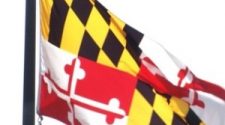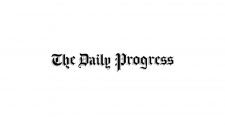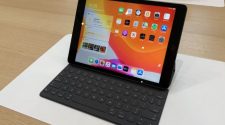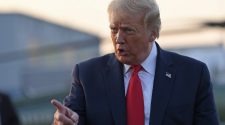Thirty-three months after taking office, President Donald Trump has chosen a group of business leaders to advise him on science and technology policy.
The White House today announced the first seven of an expected group of 16 members of the President’s Council of Advisors on Science and Technology (PCAST). Only one is an academic—Birgitta Whaley, a chemistry professor at the University of California, Berkeley, who leads its center on quantum information and computation science—although five of the appointees hold Ph.D.s. And only one has worked for the federal government: Sharon Hrynkow, a neurobiologist and chief scientific officer for a biotech startup, spent nearly 2 decades at the Department of State and the Fogarty International Center of the National Institutes of Health, including 2 years as its acting director in the mid-2000s.
The other members named today are:
- Catherine Bessant, chief technology officer (CTO) for Bank of America in Charlotte, North Carolina. She holds a bachelor’s degree in business administration;
- Dario Gil, director of IBM Research. The Spanish-born materials scientist joined IBM in 2003 after earning a Ph.D. in electrical engineering from the Massachusetts Institute of Technology (MIT) in Cambridge;
- H. Fisk Johnson III, CEO of S.C. Johnson & Son, a privately held cleaning products company based in Racine, Wisconsin. Johnson, who is the fifth generation of his family to lead the 133-year-old company, holds a Ph.D. in physics;
- Attiganal Sreeram, senior vice president of research at Dow, Inc., in Midland, Michigan. The Indian-born scientist also holds a Ph.D. from MIT;
- Shane Wall, CTO and head of HP Labs in Vancouver, Washington. An angel investor and serial entrepreneur, he holds a bachelor’s degree in computer engineering.
The council will be chaired by Kelvin Droegemeier, director of the White House Office of Science and Technology Policy (OSTP). That arrangement was also true in previous administrations, although under former President Barack Obama one of PCAST’s members also served as the council’s co-chair.
Earlier versions of PCAST go back to former President Harry S. Truman, and military technologies dominated the discussion. Former President Richard Nixon was so annoyed by the advice he was receiving from his panel of scientific experts that he abolished the committee in 1973. It has played a less controversial—and less visible—role since being reconstituted in 1976 under the then-new OSTP.
An OSTP press release says that “the next wave of nominees, which includes several additional scholars from academia, is proceeding through the clearance process.” Their names will be announced “in the near future,” it says, along with information on the council’s first meeting.


















Tennis has nothing to fear from Novak Djokovic catching Roger Federer